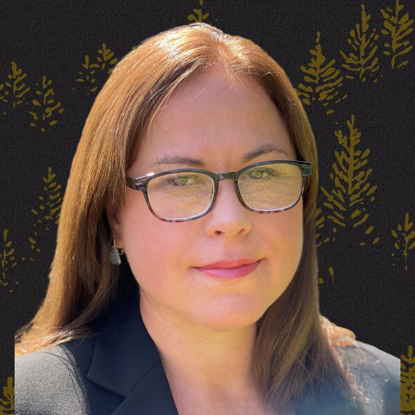
Estate Planning Terminology
Administrator (or Administratrix): The individual appointed by the court to represent the estate of a deceased person who did not leave a will.
Ancillary Administration: An additional probate, where an estate’s assets in a state other than the state where the deceased lived is administered and distributed.
Annual Gift Exclusion: The amount of money you can give as a gift annually without incurring a gift tax.
Assets: Anything you own. This could include a home, property or other real estate, vehicles, jewelry, investments, life insurance, furniture, clothing, art, and all other belongings, regardless of value.
Assignment: The act of transferring interest in assets from one name to another. This is often used when transferring assets to a trust.
Attorney-in-Fact: The person named as agent under a power of attorney to handle financial affairs of another
Basis: The tax cost of on an asset (can be adjusted for factors such as depreciation or damage), used to determine capital gain or loss.
Beneficiaries: Individuals or organizations who are to receive gifts assets from an estate of a decedent.
Certificate of Trust: A “minimized” version of a trust intended to verify the trust’s existence and authority. It may explain the powers given to the trustee or names the successor trustees. No information pertaining to the trust assets, inheritances or beneficiaries is included.
Charitable Lead Trust: An irrevocable trust designed to provide specified amount to a designated charity or charities for a term of years, with any remaining assets passing to non-charitable beneficiaries upon termination of the trust
Charitable Remainder Trust: An irrevocable trust designed to reduce the taxable income of indivdiuals by providing a specified amount to non-charitable beneficiaries for a term of years, with the remaining trust assets passing to charity upon termination of the trust.
Children’s Trust: A type of trust included within estate plan to provide funds for a child.
Codicil: A written amendment to a Will.
Co-Grantors: Two or more people who create one trust together.
Co-Trustees: Two or more persons who have been named in a trust to act together as trustees of a trust.
Community Property: A system in which assets/property acquired by one spouse during a marriage is considered to be owned jointly by both spouses.
Conservator: A individual who is appointed by the court to assume responsibility for the assets or financial interest of an incompetent person or minor.
Contesting (Will or Trust): A type of lawsuit objecting to the validity of the terms of a will or trust.
Contingent Beneficiary: Secondary person or organization named to receive assets in the event that the primary beneficiary named in a trust dies before the owner does.
Corporate Trustee: An organization or business that will act as trustee of a trust.
Credit Shelter Trust: A type of trust that allows married couples to reduce estate taxes by preserving state and federal estate tax exemptions.
Creditor: Institution or person who is owed money
Custodian: A person designated to manage the inheritance left to a minor until they reach the a specified age.
Deceased/Decedent: A person who has died.
Descendant: A person’s children, grandchildren, or more remote family members who are related by blood or legal adoption. Descendants do not include parents, spouses, grandparents or siblings.
Deed: A legal instrument, in writing, that affirms or confirms an interest in property. The deed can also be used to pass ownership/title to another person.
Disclaim (Gift or Inheritance): The refusal to accept inheritance or a gift, in which case it will go to the recipient next in line.
Discretion: The power, whether it be full or partial, to make a decision with regard to an asset or estate.
Disinherit: The act of preventing a person from inheriting funds or assets from an estate.
Distribution: The payment of assets or funds from an estate to the beneficiaries.
Dry Trust: A Trust that has been established but not funded (i.e. no assets have been transferred to the trust).
Durable Power of Attorney: A legal document that grants authority to another person to make financial decisions on an individual’s behalf, in the event that the granting individual is unable to for yourself.
Equity: Accounting measurement that subtracts the liabilities of a property/asset from its market value.
Estate: Property, money, assets and debt left behind by an individual when they die
Estate Administration: The process of obtaining all of the assets of an estate then distributing those assets after paying/settling the debts of the decedent.
Estate Tax: Tax imposed (state or federal) on a decedent’s estate when the value of said estate exceeds the exclusion limit set by law.
Estate Tax Exemption: The threshold an estate can valued after an individual’s death without incurring an estate tax.
Executor (or Executrix): A person named within a will to carry out the terms in the will and administer the decedent’s estate.
Fiduciary: An individual or entity, held to the highest legal standard, bound to act in the best interest of another.
Funding: The act of transferring money or assets into a trust.
Generation Skipping Transfer Tax: Federal tax that is placed on results when there is a transfer of property by gift or inheritance to a beneficiary who is at least 37 and one-half years younger than the donor.
Gift: An asset or monetary amount that is given from one individual to another without fair compensation.
Gift Tax: A federal tax on gifts given (of any value) to another while living.
Grantor: A person who creates at trust.
Gross Estate: The value of an estate before debts are paid.
Guardianship: The position of being legally responsible for the care of another who is unable to manage their own affairs.
Health Care Proxy: A legal document that bestows authority to another person to make healthcare decisions on behalf of an individual in the event that the individual is unable to make his or her wishes known.
Heir: A person who is legally entitled to receive property upon the death another.
Holographic Will: A will handwritten and signed by the testator.
Homestead Exemption: A legal provision that helps shield a home from some creditors following the death of a homeowner spouse or the declaration of bankruptcy..
Incapacitated: A person who lacks the ability to take care of his or her own affairs, or physical health and safety.
Independent Administration: A form of probate that is intended to simplify the process by requiring fewer court appearances and less supervision. Only available in certain states.
Inheritance: Assets that are passed down and received from someone who has passed away
Inter Vivos Trust: Another term for a living trust.
Irrevocable Trust: Generally, a trust, once established, that cannot be revised, altered, or cancelled without permission from the court.
Intestate: To be without a will.
Joint Ownership: A status in which two or more people co-own an asset in its entirety.
Joint Tenants with Right of Survivorship (JTWROS): Joint ownership that results in a deceased owner’s share automatically being transferred to the surviving owner.
Land Trust: Also referred to as a title holding trust, is a private trust agreement, generally revocable, that allows the beneficiary to direct the trustee in all matters affecting the trust property.
Liquid Assets: Cash, stocks, and other assets that can easily be converted into cash.
Living Probate: The court-supervised process of managing the assets of someone who is alive but incapacitated.
Living Trust: A written legal document that creates an entity to which you can transfer ownership of your assets, provide instructions for managing your assets while you are living, and direction for how you would like assets distributed after your death.
Living Will: A document detailing a person's desires regarding their medical treatment in circumstances in which they are incapacitated and are no longer able to express informed consent.
Marital Deduction: A federal estate tax law that may allow a deceased spouse to leave an unlimited amount of assets to their living spouse without incurring a gift or estate tax.
Medicaid: a federally funded health care program that provides health care coverage for low income individuals.
Medicare: A federally funded health care program primarily for Americans over the age of 65.
Net Estate: The value of an estate after all debts have been paid
Net Value: The value of an asset after a loan or debt is deducted
Per Capita: A method of distributing an estate so that all surviving beneficiaries of a particular group receive an equal share of the distribution. The share of any descendant that predeceases the testator (the person who created the will) will be shared equally among the remaining descendants of that group.
Per Stirpes: A method of distributing an estate so that if a beneficiaries predecease the testator, that beneficiaries share will on to that person’s heirs.
Personal Property: Movable property, such as vehicles, personal belongings, furniture, jewelry.
Personal Representative: Synonymous with Administrator or Executor; A person named within a will to carry out the terms in the will and administer the decedent’s estate.
Pooled Trust: A type of fund in which contributions to he fund come from many different individuals and are pooled together for administrative and investment purposes; however each individual has a separate account based on that individuals contributions. These trusts are usually established and administered by non-profit organizations.
Portability: With regard to the federal estate tax exemption; The ability to transfer to the surviving spouse the unused federal exemption of the deceased spouse.
Power of Appointment: The power to decide the disposal of property.
Power of Attorney: A legal document that gives someone legal authority to sign on your behalf.
Probate: The legal process that takes place to validate a will, distributing assets after death and paying debts.
Probate Estate: All assets owned by an individual at his or her death that is subject to probate administration.
Probate Administration Costs: The fees that accrue when an estate goes through probate, which are paid from assets in the estate before the assets are distributed to beneficiaries. Probate costs may include legal, executor, accounting and appraisal fees.
Qualified Domestic Trust (QDOT): A trust that allows a surviving non-citizen spouse to take a marital deduction.
Qualified Terminable Interest Property Trust (QTIP): A trust that qualifies for the federal marital deduction. This trust allows a spouse to give a life estate in property to his or her spouse without incurring federal gift tax. The recipient spouse does not have power of appointment over the principal within the trust.
Quitclaim Deed: A legal document that allows a person to transfer any interest an individual has in real property to another—as is.
Real Property: Fixed property that is unable to be moved, such as a house or a building.
Recorded Deed: A deed that has been filed with the county land records, which creates a public record
Revocable Trust: A trust that allows the creator to change, revoke, or cancel the trust during their lifetime. This is opposite of the irrevocable trust.
Separate Property: Assets that were acquired before marriage, or were acquired as gifts or inheritance during marriage.
Separate Trust: A trust that is created by only one spouse.
Specific Gifts: A list of special assets that will be given to specific individuals or organizations after a person dies.
Special Needs Trust: Generally, a trust that allows an individual to leave money or assets for the benefit of a disabled person without interfering with the disabled person’s eligibility for government benefits such Medicaid or SSI.
Spendthrift Clause: Protects a beneficiary’s inheritance by preventing the beneficiary’s creditors from attaching an interest to the beneficiary’s inheritance before it is distributed.
Spouse: A married partner, husband or wife
SSDI: Social Security Disability Insurance: A Social Security benefit that pays a benefit to an individual and/or a specific family member based on the amount paid into the social security system.
SSI: Supplemental Security Income: a need based Social Security administered benefit that pays monthly benefits to those that qualify.
Surviving Spouse: The husband or wife who is alive after their spouse dies
Successor Trustee: Person or institution named within a trust who is delegated to take over should the original trustee resign, die, or become incapable of managing the trust.
Testator: A person who has made a will.
Tax Deferred Plan: A retirement savings plan that qualifies an individual for special income tax treatment. Contributions made to the plan and appreciation are not liable for taxation until they are withdrawn at a later time, such as retirement.
Taxable Gift: A gift of more than $15,000/year to another. Generally, gifts between spouses are unlimited.
Tenants-in-Common: A form of ownership in which two or more people hold interest in a property and each owner has the right to leave their share of the property to a beneficiary upon their death.
Tenants-by-the-Entirety: A type of concurrent ownership for married couples in which each spouse has a right of survivorship over a property; however, neither spouse can terminate the ownership rights without consent of the other.
Testamentary Trust: A trust contained within a will, which becomes active when the testator dies, that provides for a distribution of all or part of an estate into the trust.
Testate: A valid will exists at the time a person dies.
Title: A document that proves the ownership of an asset
Transfer Tax: A tax on the transfer of title to property to another—such as gift tax or estate tax.
Trust: An entity that allows for property or assets to be legally owned and managed by an individual or corporation for the benefit of specified individuals.
Trust Company: An institution that manages trusts
Trustee: A person or corporation who manages and distributes the contents within a trust according to instructions stated within the trust
Totten Trust: A form of trust that will transfer to the named beneficiary when the creator of the account dies. Also commonly seen with “transfer on death” (TOD) or “pay on death” (POD)
Unified Credit: An amount for gifting during one’s lifetime and at one’s death without requirement to pay estate taxes.
Unfunded: A living trust has not had any assets transferred into it.
Will (Last Will & Testament): A written document with instructions on how you want your assets to be managed and distributed after your death. A will can only be enforced via probate.

-
 About Us
About Us -
 Resources
Resources -
 Video FAQ
Video FAQ

Meet Your Advocates
Focused on Client Relationships, Integrity, Results & A Better Tomorrow
-
 Lewis Irwin Landerholm Founding Partner
Lewis Irwin Landerholm Founding Partner -
 Will M. Jones Partner
Will M. Jones Partner -
 Alan Nieczyporuk Attorney
Alan Nieczyporuk Attorney -
 Natalie Thorp Jr. Partner
Natalie Thorp Jr. Partner -
 Kimberly Brown Attorney
Kimberly Brown Attorney -
 Darin Wisehart Attorney
Darin Wisehart Attorney -
 Sarah Bain Attorney
Sarah Bain Attorney -
 Olivia Raymond-Williams Attorney
Olivia Raymond-Williams Attorney -
 Timothy Downin Attorney
Timothy Downin Attorney -
 Christy Carpenter Limited License Legal Technician
Christy Carpenter Limited License Legal Technician -
 Shanni Moore Paralegal
Shanni Moore Paralegal -
 Eryn Sisson Paralegal
Eryn Sisson Paralegal -
 Lauren Antrim Associate Manager of Finance, Human Resources & Administration
Lauren Antrim Associate Manager of Finance, Human Resources & Administration -
 Terrance Hogan Attorney
Terrance Hogan Attorney -
 Andy Kralios Attorney
Andy Kralios Attorney -
 Michael Trotter Attorney
Michael Trotter Attorney -
 Zach Santos Attorney
Zach Santos Attorney -
 Lisa Parsons Lead Paralegal / Workflow & Training Specialist
Lisa Parsons Lead Paralegal / Workflow & Training Specialist -
 Lesley Sepetoski Paralegal
Lesley Sepetoski Paralegal -
 Laura Pride Paralegal
Laura Pride Paralegal -
 Jeannette Cordova Paralegal
Jeannette Cordova Paralegal -
 Kailey Maginnis Paralegal
Kailey Maginnis Paralegal -
 Teena Quichocho Paralegal
Teena Quichocho Paralegal -
 Zulema Cornejo Paralegal
Zulema Cornejo Paralegal -
 Claudine McKague Legal Assistant
Claudine McKague Legal Assistant -
 Rachel Woleben Director of Finance, Human Resources, and Administration
Rachel Woleben Director of Finance, Human Resources, and Administration -
 Kari Landerholm Director, Marketing & Growth
Kari Landerholm Director, Marketing & Growth -
 Steve Altishin Director, Client Partnerships
Steve Altishin Director, Client Partnerships -
 Jeremy Armitage Associate Manager of Finance, Technology, and Administration
Jeremy Armitage Associate Manager of Finance, Technology, and Administration -
 Claudia Preciado Client Billing Manager
Claudia Preciado Client Billing Manager
































